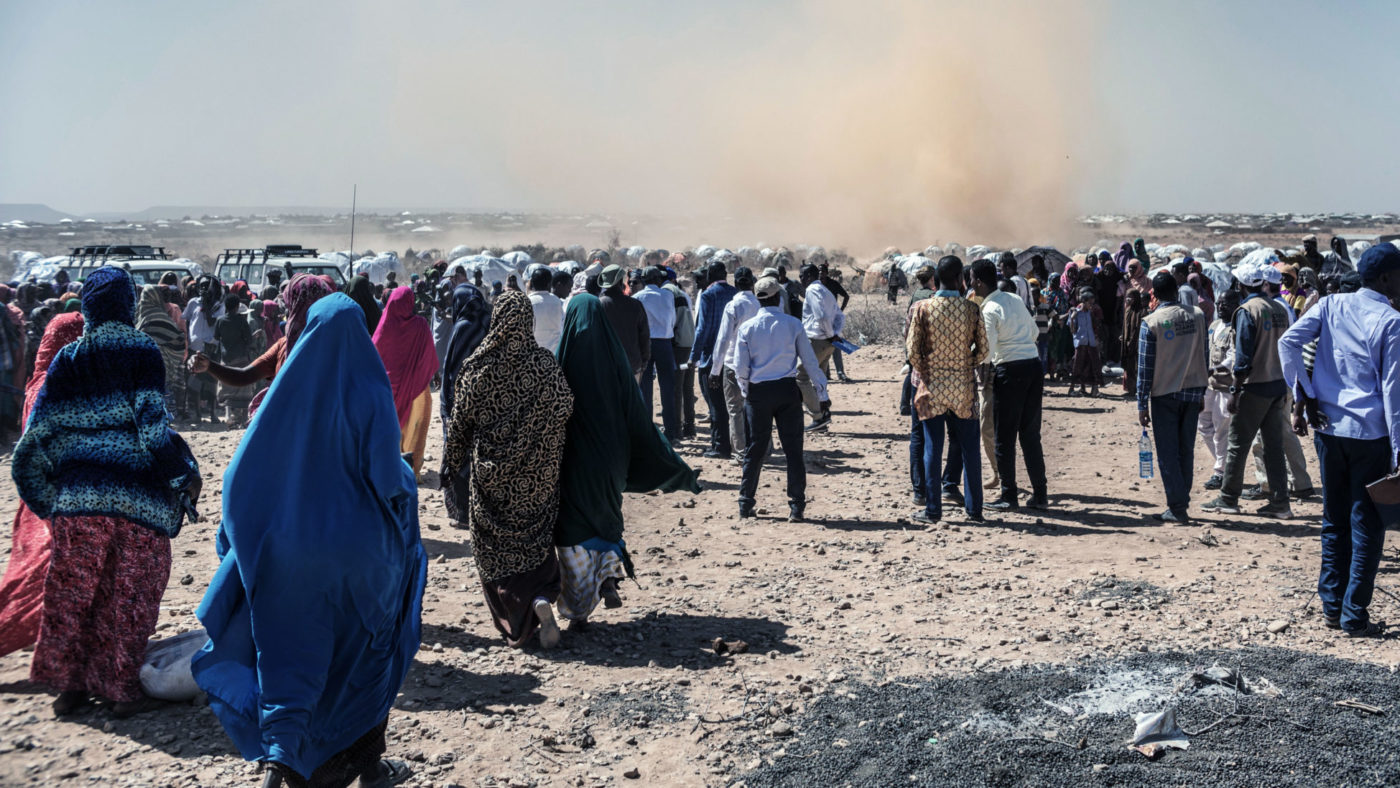Images of confused, caged children in foil blankets may have captured the media’s attention this week, but they are symptomatic of a much bigger global refugee crisis that is still barely understood.
The footage from the Mexican border broke my heart as a mother and amazed me that these levels of inhumanity were possible in the 21 st century. It was deeply uncomfortable. But at least the cameras were there to record the monstrous injustice.
I am even more concerned about the places where the suffering goes untroubled by TV cameras. Specifically, I am worried about the staggering 66 million people who have been forcibly displaced globally – equivalent to uprooting the entire UK population.
At Legatum, we believe this global refugee crisis is the humanitarian issue of our time. And things are getting worse, with the highest levels of displacement on record this year. This crisis requires an urgent response from governments to work together to address the causes of fragile states and do their fair share for displaced people.
Instead, the headlines on World Refugee Day this year were about President Trump’s aggressive, populist campaign on the Mexican border, where families have been forcibly separated. Governments are baffled, with no coherent policy response.
Global people movement is not the one-dimensional story many imagine. We think we know about young, able migrants from poor countries seeking prosperity in rich countries, swelling “jungle camps” on borders like Calais or Lampedusa island. No, the real crisis is playing out unseen in places where many fear to visit. It is where “irregular” journeys take place to the lowest income countries such as Ethiopia, driven by displacement, war and desperation.
In the Legatum Institute’s new report, Global People Movements, we find that governments around the world lack the data to properly assess the scale and severity of the challenge, preventing them from formulating an effective policy response. We have a tragedy unfolding, and few effective solutions.
Contrary to conventional images of economic migrants gravitating to rich host countries for a new life of wealth-creation, most migrant journeys are to neighbouring countries in the low-to-middle income bracket within their region of origin. The lowest income countries, least capable of resourcing the burden, host as much as 30% of the global total of refugees. Conditions are often miserable.
Registered refugees represent a tiny fraction of all the migrants who are vulnerable or driven by necessity. The number of individuals forcibly displaced (internally and cross-border) has reached a record high. Of the 66 million people experiencing forced displacement, approximately 40 million are internally displaced in countries such as Nigeria and Syria.
While conflict is a well-recognised cause of migration, it is high levels of socio-economic vulnerability, a climate of insecurity and natural hazards that also drive people movement. Migrants are frequently exposed to intolerable levels of risk in transit. Irregular migrants who often lack paperwork and therefore official protection face dangerous journeys.
They are unprotected, they accumulate and become trapped by debt with no legal recourse. The limited opportunities for legal migration forces individuals to use people smugglers, where there is a risk of being trafficked. Migrants who fall prey to human traffickers can be exploited in both transit and destination countries.
The number of identified victims of human trafficking could represent less than 1% of the true number. During the migrant journey, the fine line with human trafficking – the acquisition of people by force, fraud or deception with the aim of exploiting them – can be easily crossed. This is one of the primary causes of modern slavery.
The paralysed response to this humanitarian crisis has a destabilising effect on fragile nations. If countries like Tunisia and Turkey collapse, the pressure of migration elsewhere will dramatically increase. So the solution, President Trump, is not to build walls on our borders nor separate families. It is to invest in stabilising and developing the economies of these nations.
If we were to spend as much time, energy and resources on the economic, social and institutional development of fragile nations we would reduce the need for people to make perilous journeys.
This is an international challenge, with no single, simple solution. It is therefore imperative that we work together, to identify the key trends, and to debate and shape effective policy responses. Locking people up and taking their children away can never be the answer.
This report, the first of three to be published this year, is a small but important step in that direction.


